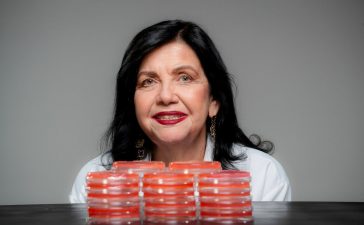Family Dollar Stores has been ordered to pay $41.675m – the largest criminal penalty in a food safety case – after getting caught using a rodent-infested warehouse to distribute food, cosmetic and medical device products to more than 400 stores in the US.
After conducting an investigation, the US Food and Drug Administration (FDA) discovered “live rodents, dead and decaying rodents, rodent feces, urine, and odors, and evidence of gnawing and nesting”, according to a statement released by the US Department of Justice.
In a federal court hearing in Little Rock, Arkansas, on Monday, Family Dollar pleaded guilty to using their distribution center located in West Memphis, Arkansas, to ship products to hundreds of stores across Alabama, Missouri, Mississippi, Louisiana, Arkansas and Tennessee.
Family Dollar has more than 8,000 stores in all states except Alaska and Hawaii.
The company began receiving complaints from some of its stores about issues with mice and other pests – including receiving rodents and rodent-damaged products from the warehouse – in August 2020. By January 2021, Family Dollar admitted it was aware of the unsanitary conditions of the warehouse which caused products there to be in violation of the Federal Food, Drug and Cosmetic Act (FDCA).
The following year, in January 2022, the extent of the unsanitary conditions of the warehouse was revealed after an FDA inspection, which found the presence of live, dead, and decaying rodents along with feces, urine and other odors, as well as evidence of gnawing and nesting throughout the building.
Subsequent fumigation of the building exterminated 1,270 rodents.
Despite the brand’s awareness of the complaints from its stores, Family Dollar continued shipping products from the infested warehouse to its stores.
The plea agreement requires Family Dollar and former rival Dollar Tree, which became the same company under the name Dollar Tree Inc in 2015, to give reports and meet “robust corporate compliance” over the next three years.
“When consumers go to the store, they have the right to expect that the food and drugs on the shelves have been kept in clean, uncontaminated conditions,” said the Department of Justice’s acting associate attorney general Benjamin C Mizer.
“When companies violate that trust and the laws designed to keep consumers safe, the public should rest assured: the justice department will hold those companies accountable.”
after newsletter promotion
In a statement shared by Dollar Tree Inc on Monday, the organization disclosed various “enhancements to strengthen safety and compliance” that it has developed in the wake of this penalty. Those enhancements include “new compliance and safety roles, hiring experienced personnel to strengthen the Company’s practices” and new “risk-based procedures and controls”. The company also said that each of its “distribution centers has passed an independent, third-party audit and became ‘Good Distribution Practices’ (‘GDP’) certified, with all distribution centers planning to maintain the distinguished certification”.
Dollar Tree’s chairman and CEO, Rick Dreiling, said in the statement that he was “very disappointed to learn about these unacceptable issues at one of Family Dollar’s facilities” when he joined the company in March 2022.
“Since that time and even more directly when I assumed the role of CEO, we have worked diligently to help Family Dollar resolve this historical matter and significantly enhance our policies, procedures, and physical facilities to ensure it is not repeated,” he said.
Family Dollar did not immediately respond to the Guardian’s request for comment.









